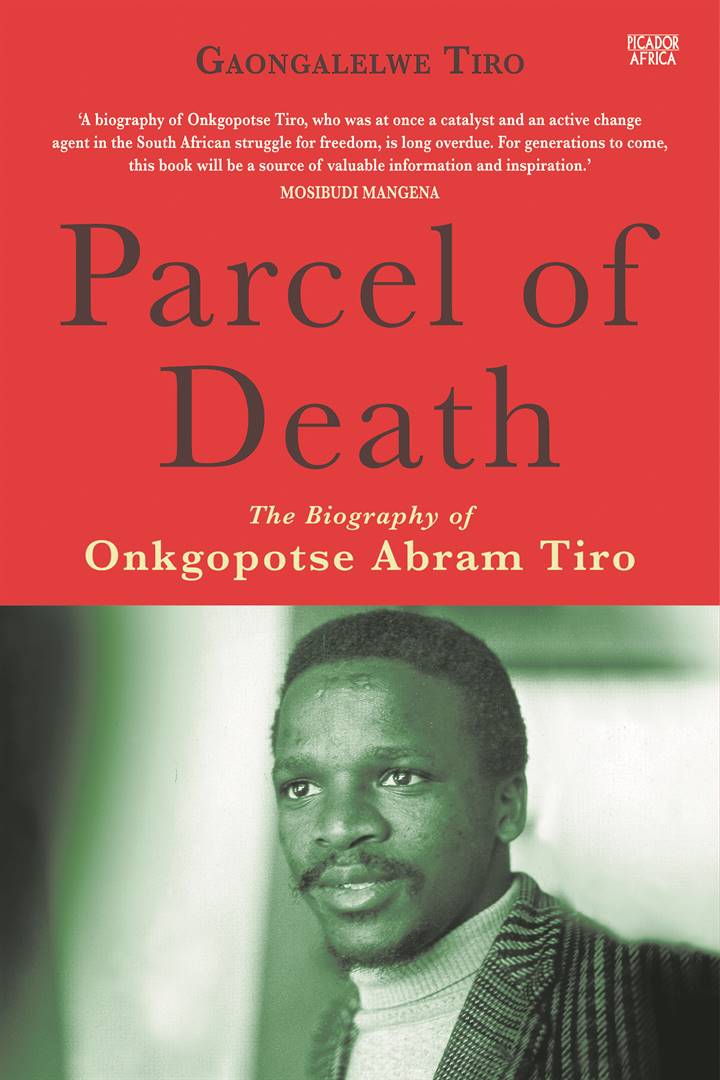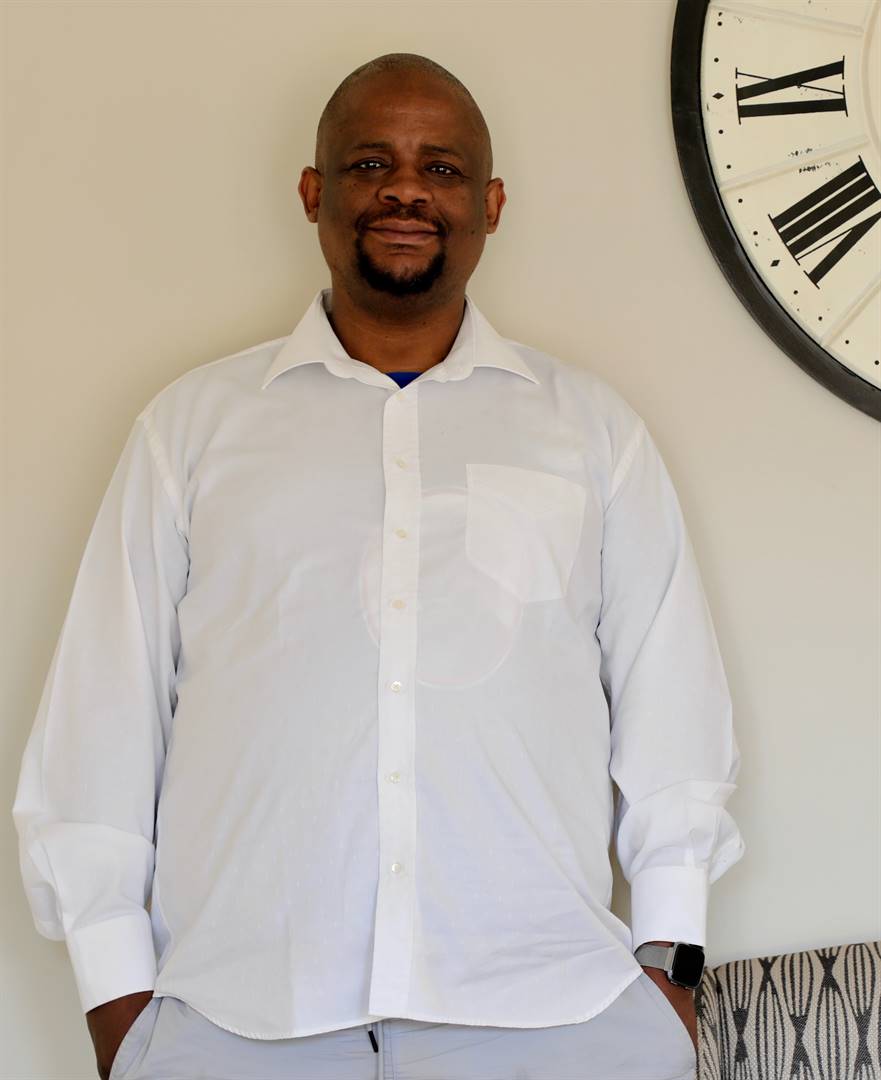
Activist Saths Cooper argues that there is little appreciation of the impact of the Tiro Affair on the evolution of the liberation struggle.
Parcel of Death
The biography of Onkgopotse Abram Tiro
by Gaongalelwe Tiro
Pan Macmillan SA
248 pages
R290
In 1972, a revolutionary speech was delivered by black consciousness movement and education activist Onkgopotse Tiro at the University of the North against apartheid, sparking nationwide protests.
In this extract from Goangalelwe Tiro’s biography on his uncle, he explains the impact the speech had on the country in galvanising the youth towards a united front against the struggle.
Escalating the struggle
The exodus into exile of the black consciousness generation of activists started in earnest after the turbulence in tertiary institutions that accompanied the Tiro Affair of 1972.
It followed the expulsion of SA Student Organisation (Saso) leader Onkgopotse Abram Tiro from the University of North (Turfloop) – now University of Limpopo – after he had climbed into apartheid during a valedictory speech.
The expulsion laid bare the fault lines that existed at Turfloop and almost crippled the entire tertiary education sector with solidarity actions at institutions of higher learning across South Africa.
Many students abandoned their studies and dedicated their lives to political activism – some left the country while others disappeared into the various communities.
“Whichever way you look at it, from the day Tiro was expelled [from Turfloop], South Africa was never to be the same,” asserts black consciousness stalwart Mpotseng Kgokong who was a student at Turfloop at the time.
“The Boers, in their own stupid way, never realised the effect that this would have on the turn of political events in the country.”
The black consciousness movement leader and activist Saths Cooper argues that there is little appreciation of the impact of the Tiro Affair in the evolution of the struggle against apartheid.
It set off a chain of events that had numerous milestones, including the June 16 student revolt in 1976 and ultimately the assassination of Steve Biko in 1977, which exposed the apartheid regime for what it was and massively discredited it in the eyes of the international community.
But the more immediate consequence of the Tiro Affair was that it provided the backdrop to the seminal June 1972 Saso annual General Students’ Council (GSC) at St Peter’s Seminary in Hammanskraal, which underscored the growing militancy among students of the time.
It was at this GSC that Saso expelled its then president Themba Sono for daring to suggest in his opening speech, closer cooperation with Bantustan leaders.
Saso director of publications Strini Moodley tabled a motion that he be censured for his personal “non-white” stand and that he should recuse himself from the chair for the duration of the meeting. Secretary Barney Pityana seconded.
Black consciousness activists used the term “non-white” to deride black people who aspired to be white or were servile in the face of anti-black racism.
Council delegate Mthuli ka Shezi proposed an addendum to the motion that Sono should resign “as president and a member of the Saso executive forthwith”.
Tiro added that he be asked to “leave the conference forthwith”. The motion was carried with the two amendments as resolution 7/72.2.
Cooper recalls that the major issue with Sono’s input was that it had not been canvassed with the leadership of Saso.
Worse, it flew in the face of the organisation’s position of “no contact” with Bantustans and white liberals.
Sono was subsequently kicked out of the meeting and expelled from Saso, Cooper and others who were there posit.
The historical record of the Saso resolution from the 1972 GSC backs them. But, in his version of events, Sono claims that he resigned and walked out of the session.
It was again at this conference, Cooper adds, that students enforced their resolution that they be referred to as Black people – a political construct encompassing Africans, Indians and coloureds.
At the time, everyone who was not white was referred to as “non-white” or “non-European”, even in newspapers. Saso expelled reporters who insisted on sticking to this practice from the 1972 GSC.
The issue of blackness was fundamental to the ideological foundations of the black consciousness movement.
It sought to eradicate the hierarchy of races that placed whites at the top, followed by coloureds and Indians, with Africans at the bottom.
The idea was to engender solidarity among all peoples who were subjected to racial discrimination under apartheid.
Reporter Bokwe Mafuna covered the conference for the Rand Daily Mail. Unbeknown to his employers, he had become a member of the Reef Saso. Mafuna too was asked to leave the meeting.
“I was working from Hammanskraal, phoning in my stories about the black students’ conference and the resolutions that were taken and everything was about black this, black that,” he says.
“It was terminology that was alien to the white world which the Rand Daily Mail was part of.
“The Rand Daily Mail, like all newspapers, had a style, the newspaper style. It was not part of the style there to address black people as black people, but they were described as non-whites, Indians or coloureds or non-European but not black.
“The students were calling themselves and describing their people as black people. This is what I also did in my stories. I wrote ‘black students yesterday decided blah, blah, blah’ and all that was changed by the subeditors in Johannesburg.”
When the delegates saw the stories written by their colleague in the Rand Daily Mail talking of non-whites, they sent him packing.
Mafuna returned to the offices of the newspaper in Johannesburg and challenged his bosses about changing his stories without consulting him, which they really did not have to do.
It still irked him, though, that they were indifferent to the clear challenge to the status quo represented by calling black people black.
Saso permanent organiser Harry Nengwekhulu and black consciousness activist Stanley Ntwasa had previously confronted Rand Daily Mail editor Allister Sparks about calling black people Bantu or non-whites during a visit to the newspaper’s offices.
But Sparks would not budge, arguing that the term “black” was “emotive”, Nengwekhulu recounts.
“He told us they were trying to find a suitable name for us with the Institute of Race Relations.”
One suggestion was “Afrocolosians” for Africans, coloureds and Indians.
An irritated Nengwekhulu told him he would call them “black people at gunpoint”.
The Rand Daily Mail stuck to its guns, which was hard for Mafuna to stomach because that clashed with a constituency with which he identified.
His choices were stark.
He left in a huff and returned to the Saso conference as a delegate of the Reef region of which he was a member.
At the insistence of Tiro, the meeting further decided to reach out to black organisations that voluntarily called themselves “Bantu” or “coloured” as this was undermining their “human dignity”.




 Publications
Publications
 Partners
Partners









